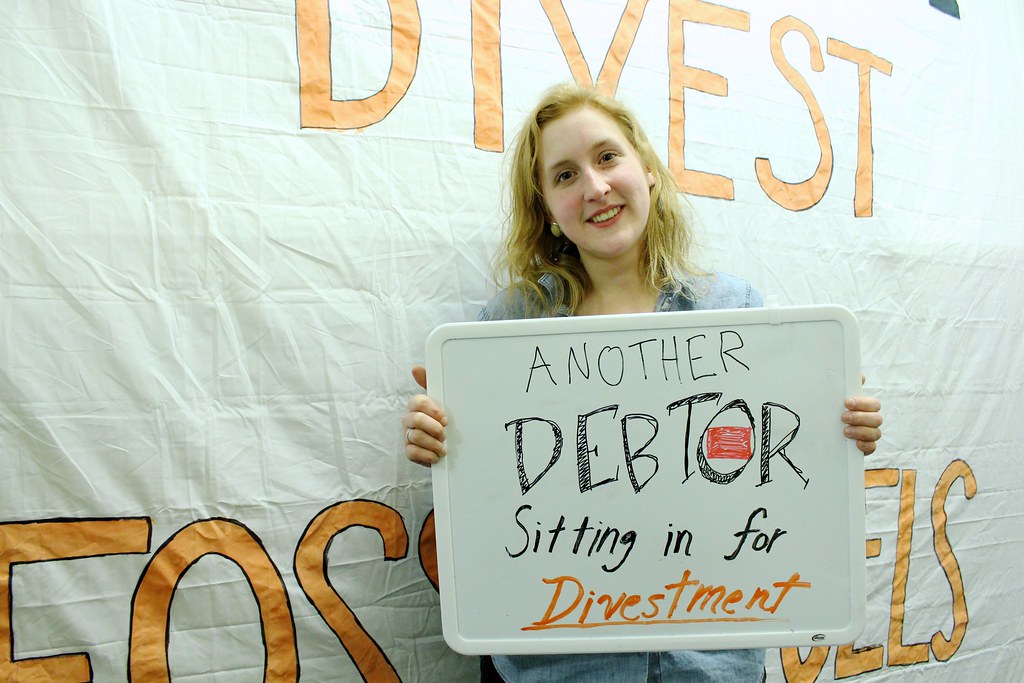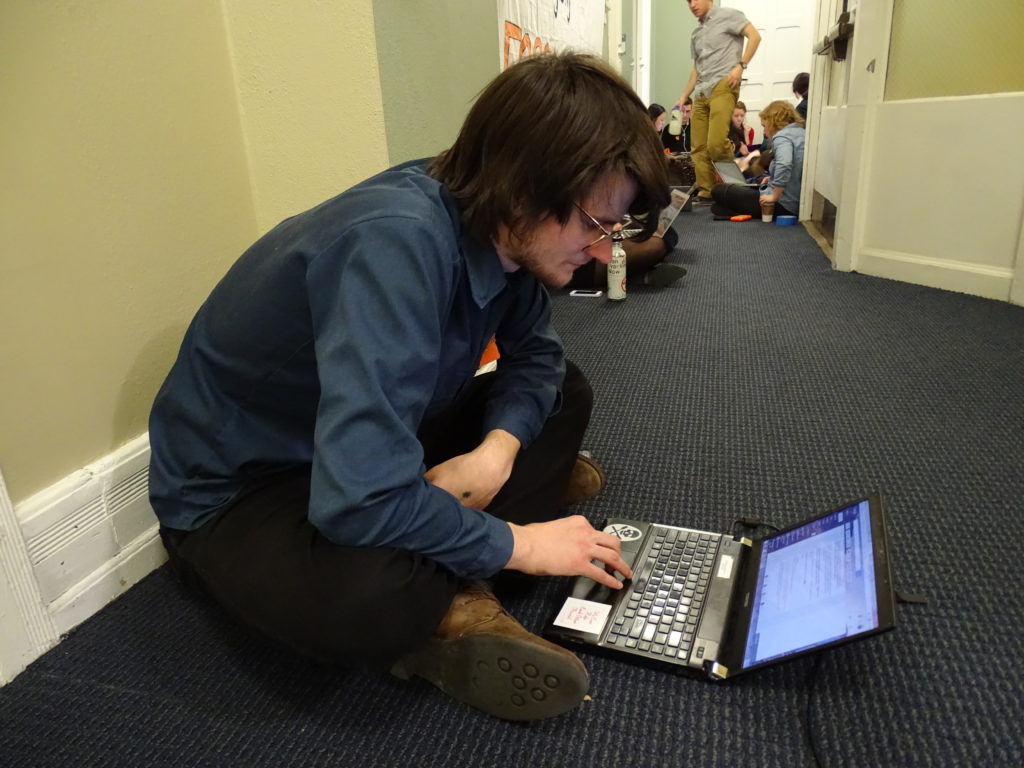This page resurrects and extends an archive of news coverage, social media, and announcements since 2014 related to the Swatdivest, Sunrise Movement, and Swarthmore Mountain Justice. As we work to reorganize and migrate the data to this site, please bear with us. This is a work in progress.
Waiting, watching, dreaming, dancing. Thank you, @robbieconal—your beautiful posters have been inspiring us all week. pic.twitter.com/8KpJjdCm7p
.@deliaridgecream + @cara_janine lead prayer @BostonCollege president’s office. 8 sleeping in tonight. #whoseside pic.twitter.com/UaSDYZHdkU
300 people, led by students, surround University Hall. #whoseside #harvardheatweek #ourside #divest pic.twitter.com/LsyGpRsvip
Wesleyan University sit in to divest from the fossil fuel industry, Israeli occupation, and the prison industrial… http://fb.me/1NDSHu4Ym
WAMC produced a story about the fossil-fuel divestment sit-in at Swarthmore College that appeared on NPR’s Morning Edition.
In the past few years, students at hundreds of colleges and universities have started pushing their schools to divest from fossil fuel companies as a way to slow climate change.
The campaign has had some notable wins in the past year. But at tiny Swarthmore College, outside of Philadelphia, where the movement was born, students have been staging a sit-in for nearly a month to try to make their voices heard.
On the first day of an extended sit-in at the elite liberal arts college, dozens of students are crowded into a hallway outside the finance offices, learning a new protest song.
“We’re asking for our school to sell its holdings in the top 200 coal, oil and gas companies,” senior Sara Blazevic says. “Divestment is a way for our school, as a institution with a lot of social standing and a lot of clout, to stigmatize the fossil fuel industry.”
Read the whole article and listen to audio broadcast coverage, including the interview with Swarthmore student Sara Blacevic on WAMC’s website.

Photo Credit: Lee Smithey
Bryan Farrell, a co-founder of Waging Nonviolence, interviewed our own student, Kate Aronoff, about the burgeoning fossil fuel divestment movement and the role Swarthmore students have played in launching it.
Students at Swarthmore have remained at the forefront of fossil fuel divestment, hosting a national convergence in February and — together with divestment leaders from a number of colleges — launched a series of meet-ups around the country this summer called GROW (Gather Rise Organize Win).
Read the whole article on Waging Nonviolence.

Our own student, Will Lawrence, has written a piece in Waging Nonviolence with Sally Bunner about the Power Up! Divest Fossil Fuels Student Convergence at Swarthmore College.
… After the fun and exciting work of starting divestment campaigns, students now face the long and challenging work of continuing them in the face of administrative obstacles. …
… To prepare for this important moment, students are gathering in Swarthmore, Pa., this weekend for the Power Up! Divest Fossil Fuels Student Convergence, where they will be sharing the skills necessary to strengthen their campaigns at home and the movement as a whole. Convergence organizers say they hope to focus on two particular threads — how the divestment movement can enact and advance an environmental justice analysis, and how divestment campaigns can coordinate to become more than the sum of their parts.
Read the whole article at Waging Nonviolence.

Photo Credit: Lee Smithey
Ben Wolcott ‘14, an honors Economics major and a course major in Sociology and Anthropology argues that traditional economics is not equipped to assess the social and political dimensions of divestment.
…Mainstream economics is a tool that has strengths and weaknesses. At its core, neoclassical theory examines the incentives around actors’ instrumental self-interest in order to describe and predict action given constraints. Unfortunately, neoclassical economics hurts our understanding of both the benefits and the costs of divestment. I will start with the benefits. While mainstream economics can help us understand situations that encourage people to act in their rational self-interest, it is worse than useless in describing how actors’ value-commitments impact their decisions.
Ultimately, everyone engaging in this conversation should examine why economists have so much say on a question that is mostly political. In America today, neoclassical economics is a dominant discipline. While its tools can be useful, it often fails to appreciate the complexities of human action. … Economics is often called the “dismal science” partially because it views people as instrumentally rational and cannot meaningfully conceptualize action based on value-commitments. We need every tool at our disposal to address climate change, and it would be dismal if we abandoned divestment due to economic arguments.
Read the full article from The Daily Gazette, now archived in The Phoenix.